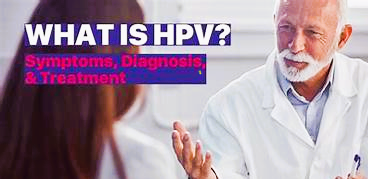Introduction:
what is HPV and its causes? Human papillomavirus (HPV) is a common and complicated collection of viruses that can infect human skin and mucous membranes. It is the most prevalent sexually transmitted infection worldwide, with several kinds that can cause genital warts and some malignancies. Understanding the causes, transmission, symptoms, and importance of the HPV vaccine is vital for maintaining sexual health and limiting its spread.
What is HPV Causses and Transmission:
The main way that HPV is spread is by direct skin-to-skin contact, which frequently occurs during sexual intercourse. It can enter the body through the mouth or vaginal mucous membranes, minor wounds, or abrasions. Furthermore, transmission from mother to kid after birthing is conceivable. There are more than 100 different forms of HPV, and some of them can cause dangerous illnesses like oropharyngeal, cervical, anal, penile, vaginal, and vulvar malignancies.
Symptoms and Effects:
Genital warts and malignancies are among the health issues that can result from HPV infections. Certain HPV infections can result in persistent infections and an increased risk of cancer, even though the majority of infections are asymptomatic and immune system-clearing. Among the symptoms are:
⦁ Genital warts:
These might show up as individual or clustered bumps in the genital region. They can have a cauliflower-like shape, be elevated or flat, or be little or huge.
⦁ Cervical cancer:
Certain HPV strains have the potential to develop cervical cancer, which frequently doesn’t show signs until it’s advanced. For this reason, routine screening is essential to early diagnosis and treatment.
The Critical Role of Vaccination:
In order to stop the virus from spreading and lower the hazards to one’s health, vaccination against HPV is essential. To protect against the most prevalent forms of HPV that might cause illness, vaccinations are available against HPV. While it can be administered as early as age 9, it is advised that boys and girls get the HPV vaccine around the ages of 11 or 12. Those up to the age of 26 who have never received a vaccination can also benefit from vaccinations. Getting an HPV vaccination has a number of important advantages.
⦁ Preventing Infection:
The HPV vaccine can guard against contracting some HPV strains, such as those linked to the growth of genital warts and a number of malignancies.
⦁ Herd Immunity:
Herd immunity, which lowers the virus’s overall prevalence in the community and protects the unvaccinated, is attained by increasing the number of people who receive vaccinations.
⦁ Cancer Prevention:
Getting vaccinated can dramatically lower your chance of getting any HPV-related cancers, including cervical cancer.
Regular Screening:
A vital component of preventive healthcare is routine screening for the Human Papillomavirus (HPV) and associated malignancies, especially cervical cancer. It entails going through routine testing, such as Pap and HPV tests, to find any aberrant alterations in cervical cells brought on by HPV. Frequent tests for abnormal cells may help uncover abnormalities early on, allow for prompt intervention and therapy, and maybe stop the development of cancer. People can proactively monitor their reproductive health, make educated healthcare decisions, and, if necessary, seek appropriate medical therapies by keeping up with screenings. Frequent screenings increase long-term health and quality of life by encouraging early diagnosis, prevention, and management of HPV-related health issues. This enhances the protective effects of the HPV vaccine and promotes overall well-being.
Safe sex practices:
It’s critical to engage in safe sexual behavior to safeguard both you and your partner against STDs, such as the Human Papillomavirus (HPV). The risk of HPV transmission can be considerably decreased by regularly and properly using condoms.
Reducing the number of sexual partners reduces the risk of contracting HPV and other illnesses as well. It’s critical to be transparent with your spouse regarding your sexual history and health. Furthermore, vaccination against HPV is a preventative measure against infection. You can protect your sexual health and well-being by adopting safe sex practices and thinking about getting vaccinated.
Conclusion
To sum up, understanding what are HPV and its causes is important. It is a common virus that has serious effects on human health. To prevent harm to others or oneself, people must be aware of the disease’s causes, modes of transmission, symptoms, important vaccine roles, and frequent misconceptions.
Vaccination against HPV can be a critical factor in preventing infection, lowering the risk of related malignancies, and ultimately improving sexual health outcomes for everyone by dispelling myths and disseminating correct information.
I hope you understand this virus well if you want to read more about this topic; link1
anotherone is also relate to this ; link2
